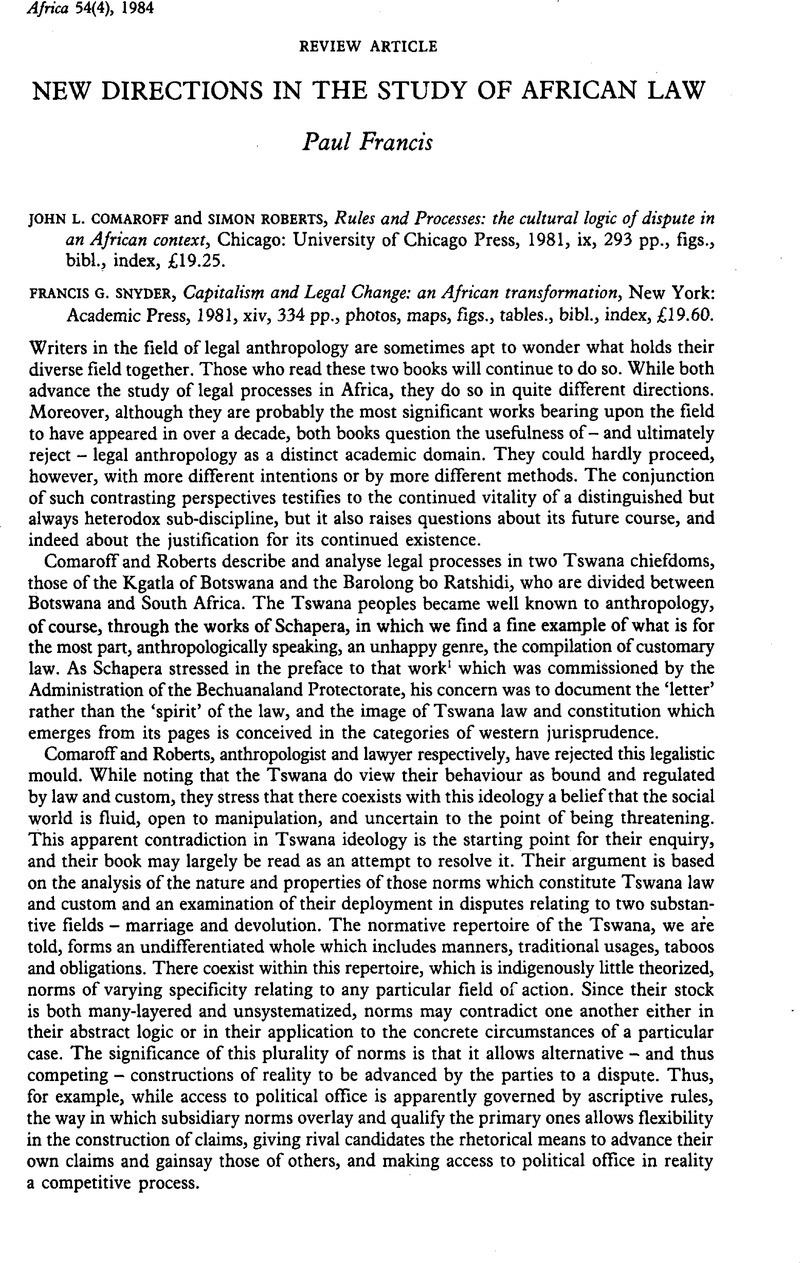No CrossRef data available.
Article contents
New directions in the study of African law
Published online by Cambridge University Press: 07 December 2011
Abstract

- Type
- Review Article
- Information
- Copyright
- Copyright © International African Institute 1984
References
NOTES
1 Schapera, I. 1938. A Handbook of Tswana Law and Custom. London: Oxford University Press for the International African Institute, p. x.Google Scholar
2 Comaroff, J. L. and Roberts, S. 1977. ‘The invocation of norms in dispute settlement: the Tswana Case’, in I., Hamnett (ed.) Social Anthropology and Law. London: Academic Press. Association of Social Anthropologists Monograph no. 14.Google Scholar
3 Radcliffe-Brown, A. R. 1952. Structure and Function in Primitive Society. London: Cohen and West.Google Scholar
4 Pospisil, L. 1971. Anthropology of Law: A Comparative Theory. New York: Harper and Row.Google Scholar
5 Schapera, , op. cit.Google Scholar
6 Malinowski, B. 1926. Crime and Custom in Savage Society. London: Kegan Paul, Trench, Trubner.Google Scholar
7 Barth, F. 1966. Models of Social Organisation. London: Royal Anthropological Institute. Occasional Paper no. 23.Google Scholar
8 Gluckman, M. 1955. The Judicial Process among the Barotse of Northern Rhodesia. Manchester: Manchester University Press.Google Scholar
9 Hamnett, I. 1975. Chieftainship and Legitimacy: An Anthropological Study of Executive Law in Lesotho. London: Routledge and Kegan Paul.Google Scholar
10 Gulliver, P. H. 1963. Social Control in an African Society. London: Routledge and Kegan Paul.Google ScholarBohannan, P. 1957. Justice and Judgement among the Tiv. London: Oxford University Press for the International African Institute.Google Scholar
11 Schapera, , op. cit. p. 125.Google Scholar
12 At p. 2.
13 Bernstein, H. 1977. ‘Notes on capital and peasantry’. Review of African Political Economy 10: 60–73.CrossRefGoogle Scholar
14 At p. 148.
15 Snyder, F. G. 1981. ‘Colonialism and legal form: the creation of “customary law” in Senegal’, in C., Sumner (ed.) Crime, Justice, and Underdevelopment. London: Heinemann.Google Scholar
16 At p. 221.
17 At p. 10.
18 At p. 245.


